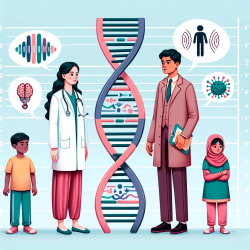Introduction
The COVID-19 pandemic has been a transformative period for educators worldwide, impacting not only the educational landscape but also the mental health of those tasked with shaping the minds of future generations. The research article, Just as Essential: The Mental Health of Educators During the COVID-19 Pandemic, sheds light on the significant mental health challenges faced by educators during this time. It highlights the importance of psychological flexibility as a key factor in mitigating depressive and anxiety symptoms.
The Impact of COVID-19 on Educator Mental Health
According to the study, educators reported elevated levels of depression and social anxiety during the pandemic. The median T-scores for general depression and social anxiety were significantly higher than the national norms, underscoring the severity of the mental health crisis among educators. The study found that psychological flexibility accounted for 33% of the variance in depressive symptoms and 24% in social anxiety symptoms, indicating its potential as a protective factor.
Understanding Psychological Flexibility
Psychological flexibility involves the ability to adapt to changing circumstances and engage in values-aligned behaviors, even in the face of challenging thoughts and emotions. The study identified three components of psychological flexibility:
- Openness to Experiences: The willingness to accept and experience difficult emotions.
- Behavioral Awareness: Being present and mindful of one's actions and their impact.
- Valued Action: Taking actions that are consistent with one's personal values.
Practical Steps for Educators
For practitioners and educators seeking to improve their mental health resilience, incorporating practices that enhance psychological flexibility can be beneficial. Here are some strategies:
- Mindfulness Practices: Regular mindfulness exercises can enhance awareness and acceptance of present experiences.
- Values Clarification: Identifying and committing to personal values can guide meaningful actions and decisions.
- Acceptance and Commitment Therapy (ACT): Engaging in therapy that focuses on psychological flexibility can help reduce symptoms of depression and anxiety.
Encouraging Further Research
While the study provides valuable insights, it also highlights the need for further research into the mental health of educators, particularly in the context of systemic and policy-level interventions. Future studies could explore the impact of school reopening plans, social support systems, and workplace mental health programs on educator well-being.
Conclusion
Addressing the mental health needs of educators is crucial for ensuring their well-being and effectiveness in their roles. By fostering psychological flexibility and implementing supportive practices, educators can navigate the challenges of their profession with greater resilience. For those interested in delving deeper into the research, I encourage you to read the original study: Just as Essential: The Mental Health of Educators During the COVID-19 Pandemic.










